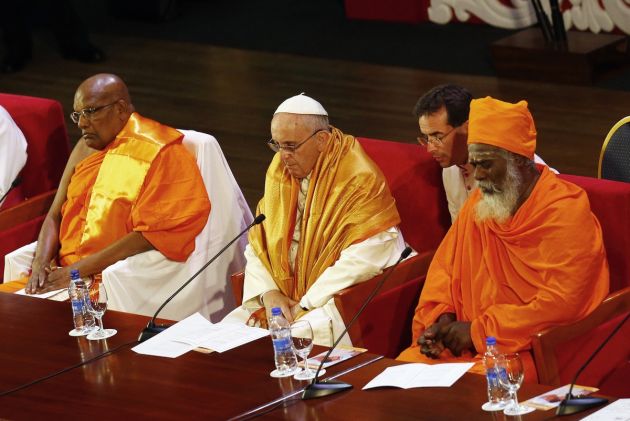Sri Lanka plans legislation outlawing racist, religious extremist groups

The Sri Lankan government is planning implement a law that bans racist and religious extremist groups at a time of heightening tensions in the predominantly Buddhist country.
Newly-elected President Maithripala Sirisena intends to propose the measure when the Sri Lankan parliament convenes in the coming weeks.
It is part of his "100 Days Work Program," said National Executive Committee member Azath Salley.
In a recent interview with ucanews.com, Salley explained that the program is a series of promises Sirisena wants to accomplish in his first 100 days in office.
The president recognized that among the problems hounding the country were increasing incidences of harassment of religious minorities, Salley said.
"We experienced many hate speeches and campaigns against other minor religions and saw many attacks on Muslim and Christian places of worship during the last administration," the committee member said.
http://www.ucanews.com/news/sri-lanka-weighs-new-law-that-would-ban-extremist-groups/73228
Sirisena's predecessor, Mahindra Rajapaksa, had been accused of backing some organizations tagged as extremists that incite racial and religious tensions. Rajapaksa lost a reelection bid early this year.
Among the groups being linked to Rajapaksa is the Buddhist organization Bodu Bala Sena (BBS), whose members had been accused of targeting Muslims in two coastal towns in July 2014. The attacks left four persons dead and 80 others injured.
Buddhists account for around 70 percent of the Sri Lankan population, followed by Hindus (15 percent), Christians (8 percent) and Muslims (7 percent)
Salley pointed out that passing a measure to ban inciting groups ensures the safety and well-being of all sectors of the society by keeping in check organizations that have a tendency to target minorities.
"We need a more disciplined society and these attacks on minority religions should not take place in future," Salley said.
A Catholic Church official from the Archdiocese of Colombo called the proposal a welcome move from the new government.
"This call for all citizens to give up racial and religious hatred must be profusely worked on in order to dispel fear, hatred, vengeance and vilification campaigns," said Father Reid Shelton Fernando, former coordinator for interreligious dialogue at the archdiocese.
He said the proposed law is a step in the right direction considering the growing number of violent incidents against minorities in the country.